Rising polygamy: Cost of being a woman in Rohingya camps
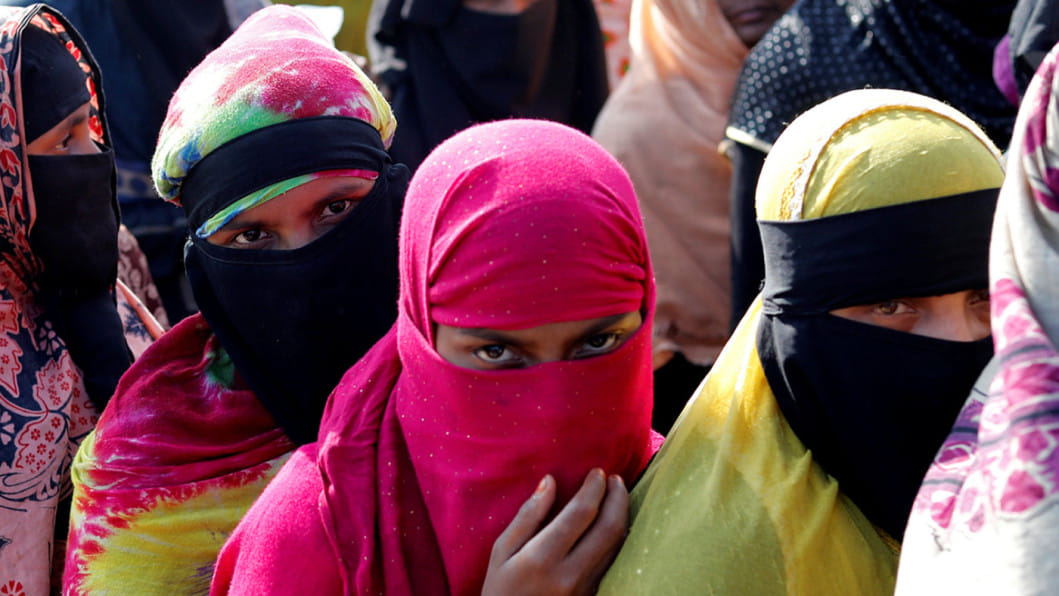
When Sukran* sat on a fishing trawler to cross the Bay of Bengal and change her life for the better, she thought for a split second that, had she gotten a marriage proposal from a "decent" family, from a man with a job, she would not have started this deadly journey to Malaysia.
Those were Sukran's words when we first met in 2020, after she was rescued from a fishing trawler with 396 other survivors around mid-February, after spending 55 days adrift in the Bay of Bengal. Cut to 2022: Sukran is married.
Her husband is a middle-aged man with five children. Sukran is his second wife and is now pregnant with her second child in the Rohingya refugees camp. This is not how Sukran wanted her life to be, as I recall. "Anyway… I have a secure life now. His first wife lives in another camp. My marriage gave me security. You know how men behave with an unmarried girl. It's better for a girl to get married when she is still entering puberty. Unmarried girls are not safe around men," Sukran tells me.
Over the last four years, polygamy has increased in Rohingya refugee camps due to the social, cultural, and religious dynamics of the community. This was not the case when they were in Myanmar. A special order was issued only for Muslims of Rakhine state in the 1990s. It stated that, without an identity check and official permission from Burma's border security force NaSaKa and Burma's Military authorities, Rohingya marriages could not take place in Myanmar. The whole process was also rigorous and expensive. Also, in 2015, Myanmar passed a monogamy law where having more than one wife was made illegal for men.
As per the dominant belief of the Rohingya community, a woman under the supervision of a man can live a safe life. But does that save them from getting harassed and raped?
"Marriage is the only solution of the community to 'save' a girl from being abused in camps. Our women are precious to us. If she is married, other men will not look at her. They should also stay at home to be safe. Or else accidents can happen," says a Female Religious Teacher (FRT).
In the camps, marriage registration is directly under the camp in-charge's (CiC) supervision, in coordination with the security forces. The CiC acts as an executive magistrate under the Mobile Courts Act, with the power to resolve disputes and implement punishments. But CiC-led documentation started only in mid-2020. After the 2017 influx of Rohingya refugees, most marriages were unregistered and became only a religious ritual. Thus, polygamy has increased.
"Powerful and wealthy men can afford more than one wife. So, why not!," asserted a Rohingya male volunteer. By saying "powerful men," he meant majhis, members of political groups, leaders, and imams who are comparatively rich and powerful in camps. Having more than one wife is a symbol of wealth and power for them.
According to 2022 figures from the UNHCR, there are around 10 percent more adult women than men in the Rohingya refugee camps. Many men were killed in the Myanmar crackdown, while some illegally migrated to Saudi Arabia and Malaysia abandoning their wives in the camps. Due to there being fewer men than unmarried women in camps, the men feel obligated to marry more than once and indulge in polygamy. Sometimes, husbands are reported to have "disappeared," but aid workers track them down to other camps, where they are found to be married to another woman. In other situations, men keep several wives in different camps to receive aid and humanitarian assistance as women in the camps are prioritised by humanitarian organisations, unlike in Myanmar. After receiving aid for different wives from the different camps, men trade the aid for cash.

Other factors which propagate polygamy are dowry (polygamous men do not ask for dowry from the bride's family), patriarchy and religious conservativeness in society, many Rohingya men being in prison for being involved in illegal activities in camps, unemployment, etc.
Aid agencies are becoming aware of this fact and are becoming strict at the distribution spot. But it is difficult due to the unregistered marriages. One of the distribution centre operators from an international humanitarian agency mentioned, "Receiving extra aid by getting married twice or thrice is a common issue here. Women come to receive aid in the distribution centre and men trade aid products through women."
Halima*, a 19-year-old girl (married to a 38-year-old man) says, "It is better to marry an already married man than to wait around to get married. Men can get married four times in our religion. My husband has two more wives in two other camps. Each of his families receives livelihood products from their respective camps. I do not like being one of my husband's three wives, but I do not have another choice."
Gender norms have been changing in Rohingya society after the displacement. While they were in Myanmar, women were involved in household chores only. Now, they have different roles to play. At aid distribution centres, they are prioritised. Working as volunteers and being community leaders, they are working to develop the capacity of other women in camps, and are learning to make their own decisions. Empowered women who are in polygamous marriages often raise their voices but get beaten by their husbands. Men are threatened by empowered women in camps and thus, gender-based violence is increasing too.
In May 2022, an ACAPS report mentioned, "Data on the number of polygamous families in the camps is not publicly available, given the sensitivity of the topic." It also mentioned that marriages between Rohingya women and Bangladeshi men are increasing, even though it is illegal. But the rate of polygamy is definitely increasing, indicating a need for immediate action.
*Names of all interviewees have been changed to protect them from being victims of misconduct.
Nazmun Naher Shishir is a humanitarian worker based in Cox's Bazar.

 For all latest news, follow The Daily Star's Google News channel.
For all latest news, follow The Daily Star's Google News channel. 


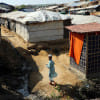
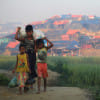
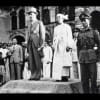
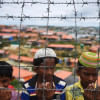


Comments